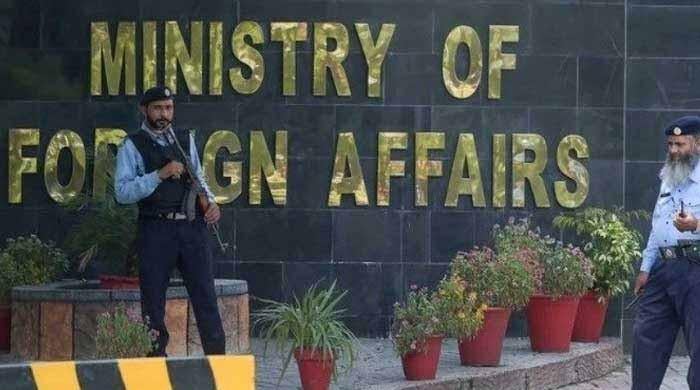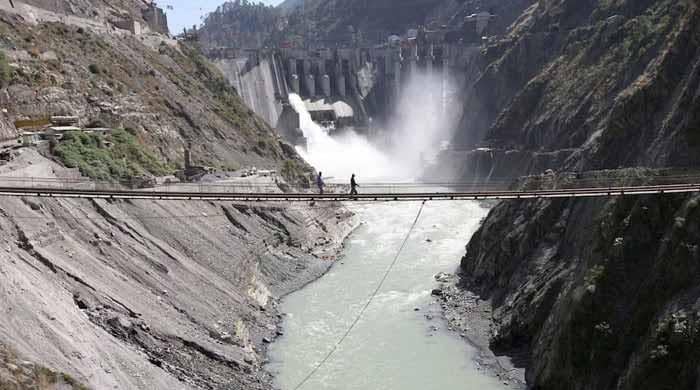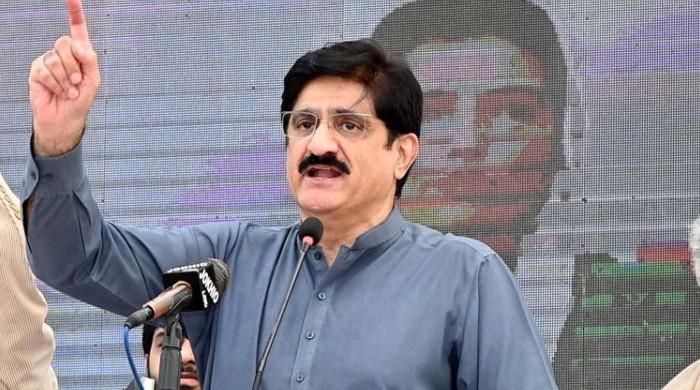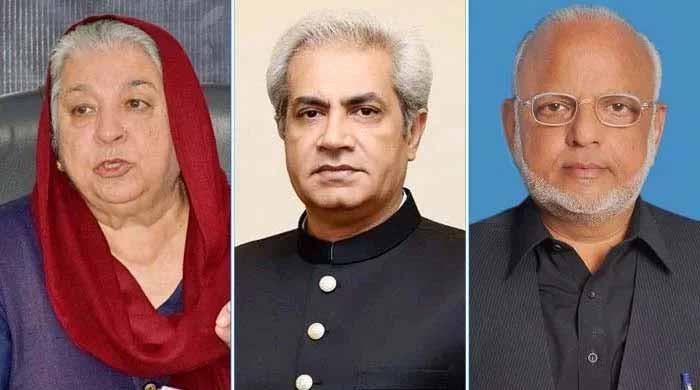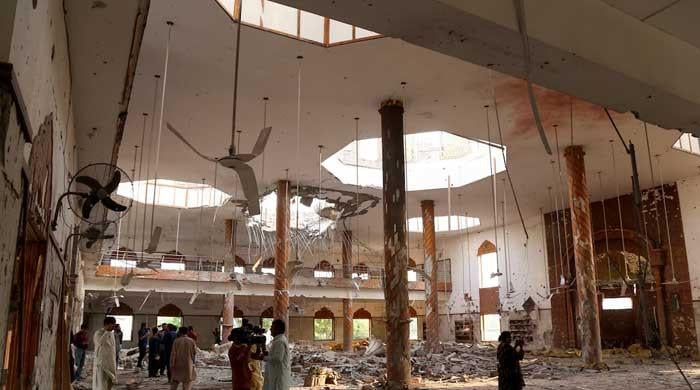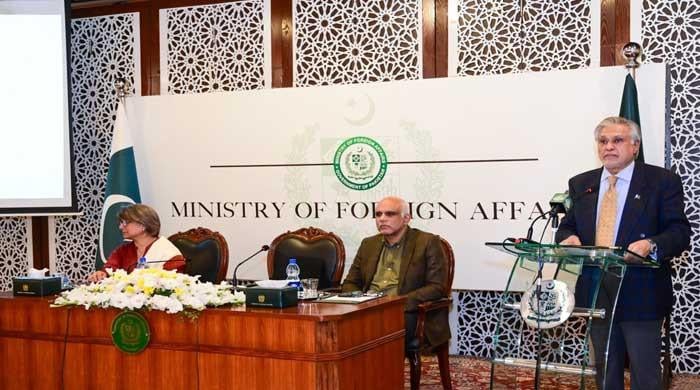19 convicts involved in May 9 riots granted pardon: ISPR
All those pardoned were serving two-year sentences; decisions on 48 mercy pleas pending
January 02, 2025

- Total of 67 convicts file clemency pleas: ISPR.
- 19 appeals approved on humanitarian grounds.
- Convicts to be released after completion of formalities.
RAWALPINDI: The sentences of as many as 19 convicts have been pardoned after they appealed for mercy, the Inter-Services Public Relations (ISPR) said on Thursday.
A total of 67 convicts have filed mercy petitions, of which 48 have been processed to Courts of Appeal, whereas, pleas of 19 convicts have been accepted purely on humanitarian grounds, in line with the law, added the military's media wing.
Noting that the remaining mercy petitions will be decided in due course of time, following the legal process, the ISPR said that the 19 individuals, whose appeals have been accepted, shall be released after the completion of procedural formalities.
Referring to the release of 20 convicts on humanitarian grounds in April 2024, the statement underscored the "strength of the due process and fairness, which ensures that justice is served while also taking into account the principles of compassion and mercy".
Providing details of the legal technicalities, legal expert Muneeb Farooq told Geo News that mercy appeals are filed before the Chief of Army Staff.
The individuals pardoned — all of whom were sentenced to two years of rigorous imprisonment — are among those sentenced on December 21 and December 26, 2024. The military court had first punished 25 individuals and a few days later, handed down punishments to 60 people.
The second batch of convicts also included Pakistan Tehreek-e-Insaf (PTI) founder Imran Khan's nephew Hassan Khan Niazi, who faces 10 years of rigorous imprisonment for his role in the Jinnah House incident.
Who have been pardoned?
- Muhammad Ayaz s/o Sahibzada Khan — was sentenced to 2 years rigorous imprisonment, involved in Main Gate FC Cantt Peshawar incident
- Sami Ullah s/o Meer dad Khan, was sentenced to 2 years rigorous imprisonment, involved in Bannu Cantt incident
- Laeeq Ahmed s/o Manzoor Ahmed — was sentenced to 2 years rigorous imprisonment, involved in the ISI Office Faisalabad incident
- Amjad Ali s/o Manzoor Ahmed — was sentenced to 2 years rigorous imprisonment, involved in ISI Office Faisalabad incident
- Yasir Nawaz s/o Ameer Nawaz Khan — was sentenced to 2 years rigorous imprisonment, involved in the Punjab Regimental Centre Mardan incident
- Said Alam s/o Maaz Ullah Khan — was sentenced to 2 years rigorous imprisonment, involved in the Punjab Regimental Centre Mardan incident
- Zahid Khan s/o Muhammad Nabi — was sentenced to 2 years rigorous imprisonment, involved in PRC Mardan incident
- Muhammad Suleman s/o Said Ghani Jan — was sentenced to 2 years rigorous imprisonment, involved in HQ Dir Scouts Timergara incident
- Hamza Sharif s/o Muhammad Azam — was sentenced to 2 years rigorous imprisonment, involved in ISI Office Faisalabad incident
- Muhammad Salman s/o Zahid Nisar — was sentenced to 2 years rigorous imprisonment, involved in ISI Office Faisalabad incident
- Asher Butt s/o Muhammad Arshad Butt — was sentenced to 2 years rigorous imprisonment, involved in Rahwali Gate Gujranwala incident
- Muhammad Waqas s/o Malik Muhammad Khalil — was sentenced to 2 years rigorous imprisonment, involved in Rahwali Gate Gujranwala incident
- Sufayan Idrees s/o Idrees Ahmed — was sentenced to 2 years rigorous imprisonment, involved in Rahwali Gate Gujranwala incident
- Muneeb Ahmed s/o Naveed Ahmed Butt — was sentenced to 2 years rigorous imprisonment, involved in Rahwali Gate Gujranwala incident
- Muhammad Ahmed s/o Muhammad Nazir — was sentenced to 2 years rigorous imprisonment, involved in Rahwali Gate Gujranwala incident
- Muhammad Nawaz s/o Abdul Samad — was sentenced to 2 years rigorous imprisonment, involved in Rahwali Gate Gujranwala incident
- Muhammad Ali s/o Muhammad Boota — was sentenced to 2 years rigorous imprisonment, involved in ISI Office Faisalabad incident
- Muhammad Bilawal s/o Manzoor Hussain — was sentenced to 2 years rigorous imprisonment, involved in the Jinnah House incident
- Muhammad Ilyas s/o Muhammad Fazal Haleem — was sentenced to 2 years rigorous imprisonment, involved in HQ Dir Scouts Timergara incident
The May 9 riots refer to the violent protests triggered by the arrest of the PTI founder in a corruption case in 2023.
The protests saw attacks on public and military installations — including General Headquarters (GHQ) in Rawalpindi, Lahore corps commander house, also known as Jinnah House, and several others across the country.
The military trials were initially halted after a Supreme Court ruling; however, the constitutional bench directed that the cases pending due to the earlier order be finalised and judgements in the cases of those accused found involved in these violent incidents be announced.
The Khan-founded party, while distancing itself from the violent protests, has not only demanded the formation of a judicial commission to probe the May 9 events but has also announced to challenge the military court convictions while labelling the civilians' trial "a blatant violation of justice".
The sentences by the military court have also warranted a response from the United States as well as the European Union, both of whom have expressed concern over the development.
While the EU termed the verdicts inconsistent with the obligations that Pakistan has undertaken under the International Covenant on Civil and Political Rights (ICCPR) and called for the judgments to be made public, Washington said that the military court "lacked judicial independence, transparency, and due process guarantees".




